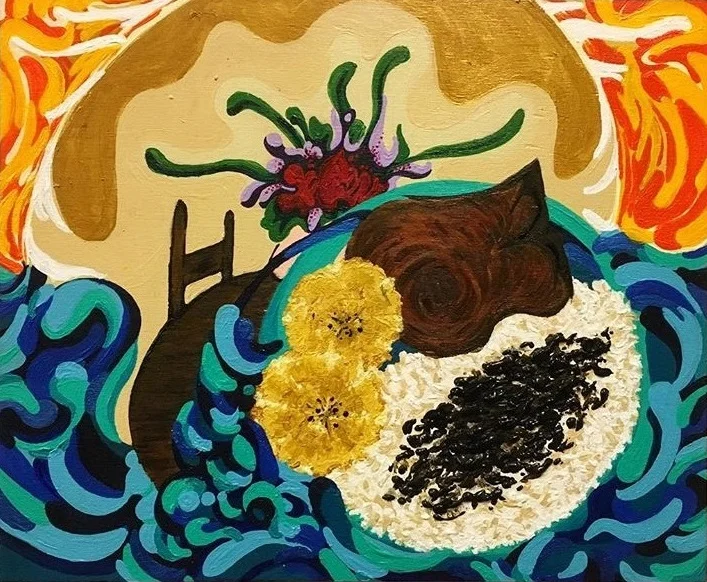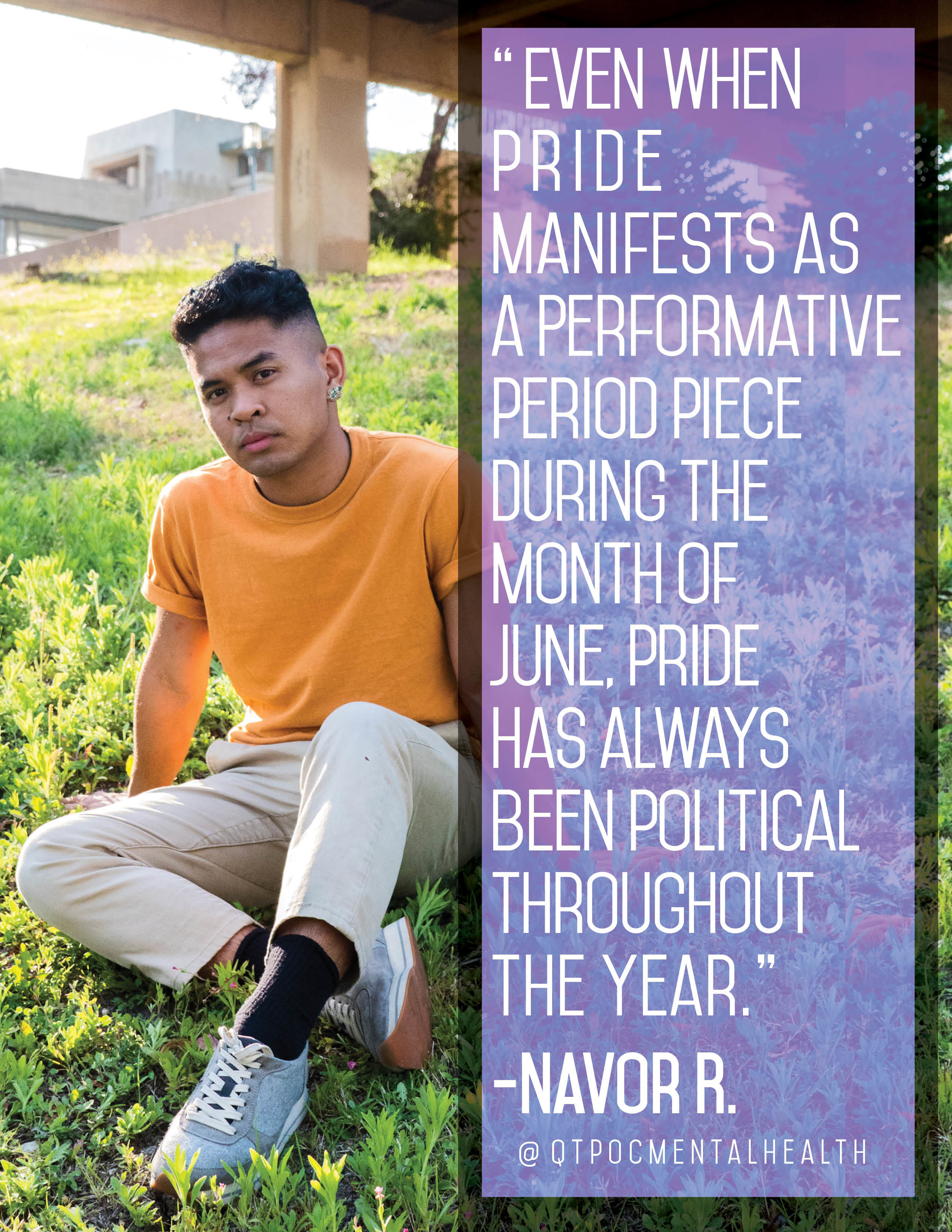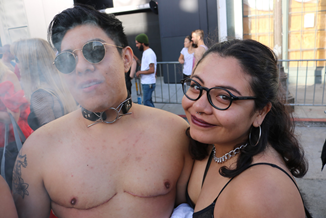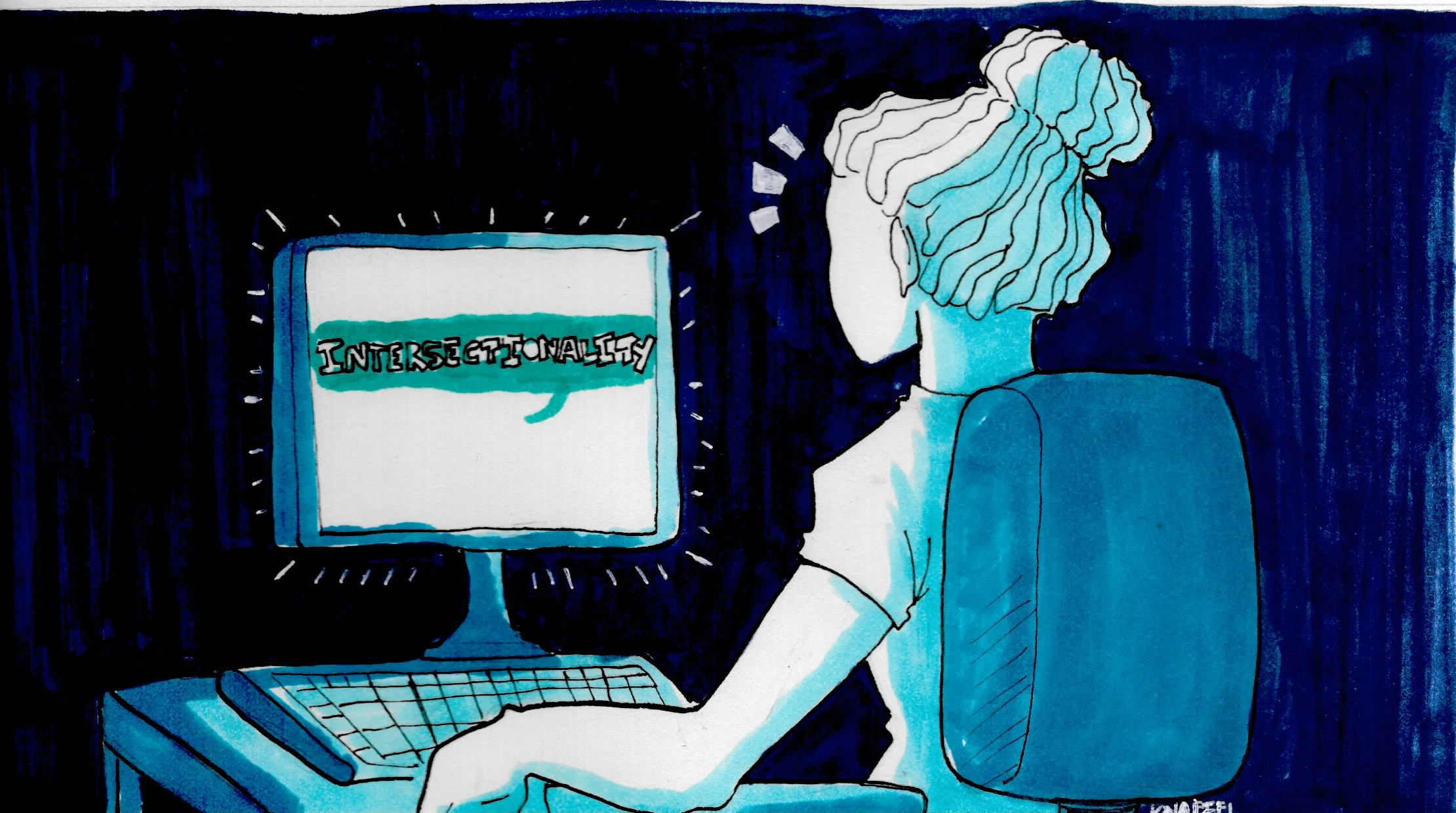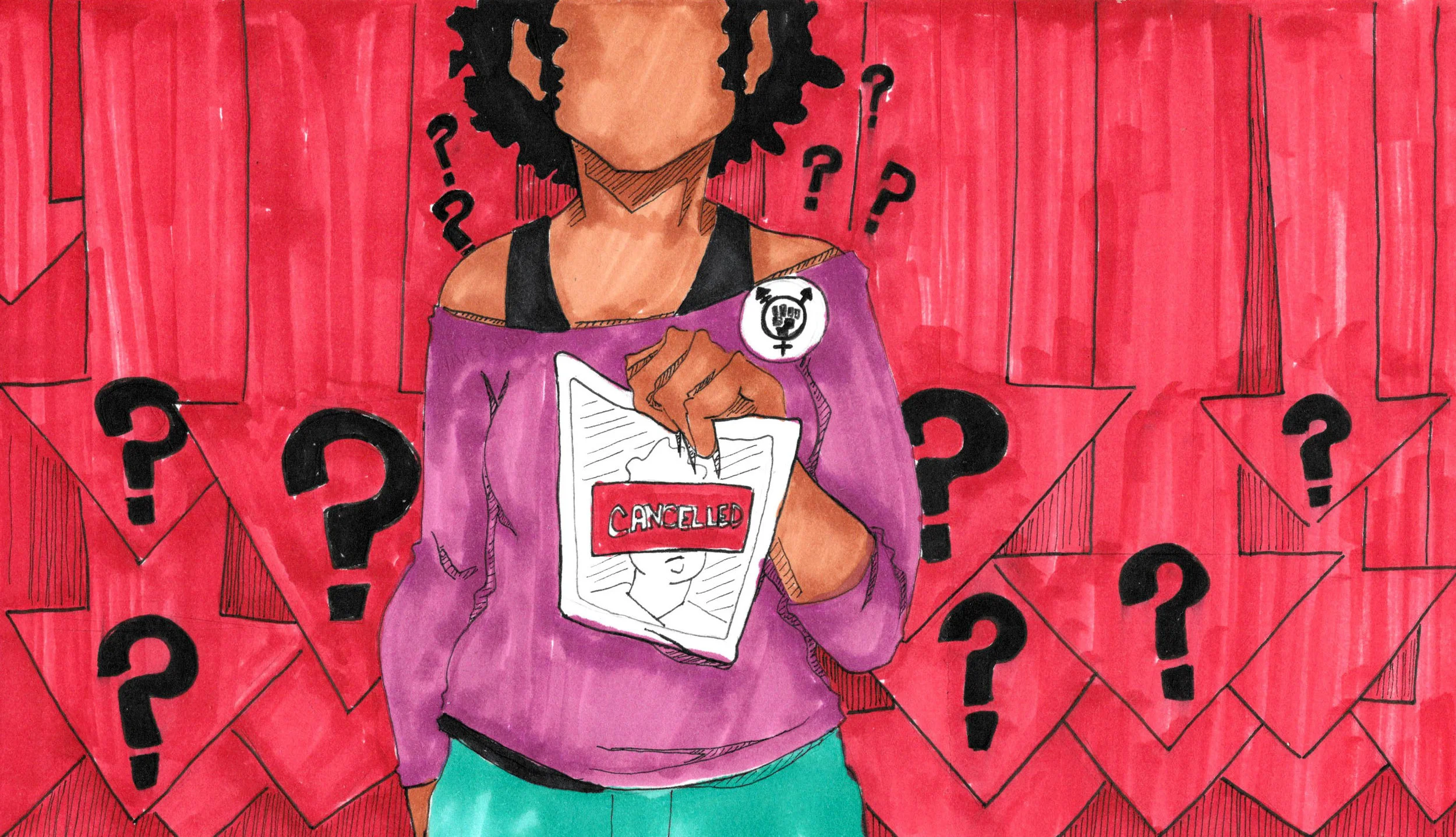Art by Duna Haller
Cockeyed
I walk bowlegged onto the tiled floor
careful not to break the ice
that separates me from this body
of water.
I am naked, save for a
pair of panties that match my skin.
He looks at me crooked;
the way a hunter looks
at a doe with antlers.
An animal stares back. &
He know I can't be in here but
at first He doesn’t know
why. My body is cockeyed. Almost
perpendicular to the blue
tile. My breasts point out of me. I am
the color of buckskin.
Hottentot Venus.
“You can't be in here”
Torcido/a
Camino arqueada por el suelo de baldosas
con cuidado de no romper el hielo
que me separa de este cuerpo
de agua.
Estoy desnuda, salvo por un
par de bragas que combinan con mi piel.
Él me mira encorvado;
de la forma en que mira un cazador
a una antílope con cuernos.
Un animal le devuelve la mirada. &
Él sabe que no puedo estar aquí pero
al principio Él no sabe
por qué. Mi cuerpo está torcido/maldito*
Mis tetas apuntan hacia fuera de mí misma. Soy
del color del ante.
La Venus Hotentote.
"Tú no puedes estar aquí"
Walking
like a deer across
the tile floor into
the pool
with less people in
My skin colored underwear
sinking away into
the murmuring
like cold water
“You can’t be in here”
Caminando
como un ciervo a través
del piso de baldosas hacia
la piscina
con menos gente dentro
Mi ropa interior del color de la piel
hundiéndose en
el murmullo
como agua fría
"Tú no puedes estar aquí"
But
this water offers resolve.
—Touches every part of my body
& does not flinch. In this pool with
other men I taste the womb I
sprang from.
I stand upright.
Transphobia dribbles
from moustached
lips like blood behind me
& I walk straight
through the icy tiles
& through the door
into water.
Pero
este agua me ofrece un propósito
--Toca cada parte de mi cuerpo
y no retrocede. En esta piscina con
otros hombres pruebo el útero que
brotó de mí.
Me quedo quieta.
La transfobia gotea
de bigotudos
labios como sangre detrás de mí
Y camino recta
a través de los azulejos de hielo
& a través de la puerta
hacia dentro del agua
We need community support to create resources!
Articles and artwork like these are only possible through your contributions. Please donate today to sustain the wellbeing of artists, writers, healers, and LGBTQ2IA+ people of color.
You can also support our team by picking up
a Rest for Resistance print zine.
Image descriptions:
A series of three collages, arranged on parchment-colored paper. The text of the poem, in English, is cut up and spaced across each page, filling up the area. Behind the poem appear images, mostly drawings of women cut from comic books. Only the first collage features photos of people at the start, then trails into comic book characters. A swirl of pink frames two opposite corners. The second collage also has a lot of pink, as well as purple; an illustration of a barren tree appears on the left, and a silhouette of a curvy figure is on the right, filled in with twinkling stars in the night sky. The final collage is orange at the top, features a Black woman's face, has more images of the starry sky person with trees, and concludes with an orca whale leaping from the water.
About Jamie Grace Alexander:
Jamie Grace Alexander (they/she) is an emerging Baltimore artist who works mainly in poetry. Finding themself in a web of intersectional identity they try to find resolution through their art. You might also know her through her activism with The Baltimore Transgender Alliance, or her curatorial work @gendermuseum.
About Duna Haller:
Duna Haller is a poet, musician and collagist from Spain. Her art is shaped by her Dissociative Identity Disorder and her trauma survivorhood, as well as is part of her healing process.
A non binary trans girl in constant survival, she has done art since she was a child and she always tries to make her art and activism as accessible and collaborative as possible.










